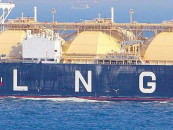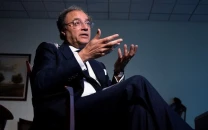Economics: The ‘vacuum cleaner’ effect
Who benefits from the misery and death of millions? The direct beneficiaries are very few who become wealthy.

Economics: The ‘vacuum cleaner’ effect
Who benefits from the misery and death of millions? The direct beneficiaries are very few in number. Publicly available internet information lists defence budgets, weapons industry, corporations involved in reconstruction and other war-related products, etc. who make astonishing amounts of profits from wars and economic crises. They have inflicted huge amounts of damage to civilisation and even to the concept of civilisation. After all, what does civilisation mean when US government official, Madeleine Albright, can state on public TV that lives of half a million Iraqi children are a price worth paying for economic and political goals?
A much larger proportion of the rich and powerful benefit indirectly from wars and crises. Since most people do have a conscience, theories which make evil actions appear good are required to enable them to sleep peacefully. The most blatant of such theories was invented by Milton Friedman, who argued that the only business of business was to make profits — it was immoral for business to have social concerns or responsibility. After teaching such theories at the MBA program for decades, Harvard Professor Zuboff stated that “I have come to believe that much of what my colleagues and I taught has caused real suffering, suppressed wealth creation, destabilised the world economy, …”
In graduate school, we were taught more subtle and sophisticated theories.The U-curve of Kuznets states that economic growth initially increases income inequalities. Solow growth models reinforce this message by showing that initial reductions in consumption (by the poor) create greater investment and rapid growth. In a nutshell, these theories reduce to the infamous ‘trickle down’ effect: Growth inevitably favours the rich, but their increased wealth will eventually trickle down and eliminate poverty. In fact, the opposite is true. Free market economic policies create a ‘vacuum cleaner’ effect: Wealth is sucked up from the poor and concentrates in the loot bags of the rich.
Mahbubul Haq was an ardent advocate of trickle down, believing that initial suffering was required for long run felicity. After applying these economic policies for 10 years, he was deeply disappointed by the results. He noted that wealth in Pakistan had become concentrated in the hands of 22 families, exactly as predicted by the vacuum cleaner effect and contrary to the trickle down theory.
The theory that scarcity of food leads to famine suggests the solution of increased production. In fact, increases accumulate in the hands of the wealthy, with no benefit to the poor. Amartya Sen won the Nobel prize for showing that famines were not caused by scarcity of food. At the height of the Bengal famine of 1943, food was being shipped out of Bengal because the starving poor did not have the money to pay for it. Again the vacuum cleaner describes empirical reality better than trickle down.
Since the Reagan era, free market policies have been pursued in the USA. Within the USA, homelessness and hunger are at record levels, according to recent USDA reports. The vacuum cleaner effect is documented by Joseph Stiglitz, who reports that the top one per cent have increased their share of wealth to an astounding 40 per cent, while the share of the bottom 90 per cent has declined substantially. The Washington Consensus was used to enforce free market policies all over the globe, with similarly predictable effects. Income inequalities have increased sharply and concentrations of wealth have increased, both within and across countries.
The vast majority of people who design and execute policies which create poverty do so in the mistaken belief that this will help the poor in the long run. Facts might help rectify these errors. Mahbubul Haq talks about his ‘agonising mistakes’, stating that “the most unforgivable sin of development planners … was to forget the real objective of development,” which was to improve the quality of lives of human beings. We hope that those with a conscience in positions of power can be similarly persuaded.
Published in The Express Tribune, May 26th, 2011.















COMMENTS
Comments are moderated and generally will be posted if they are on-topic and not abusive.
For more information, please see our Comments FAQ